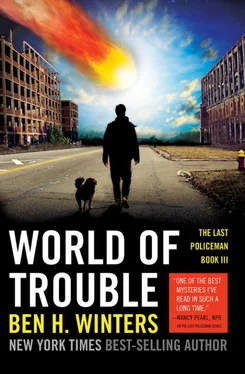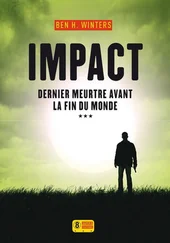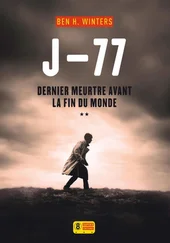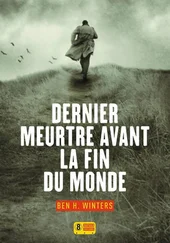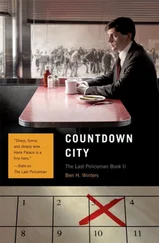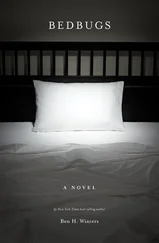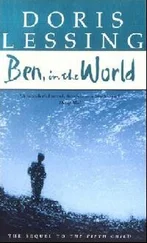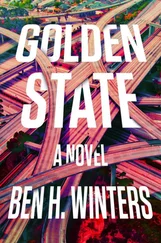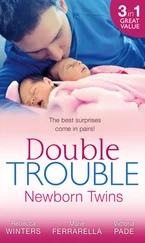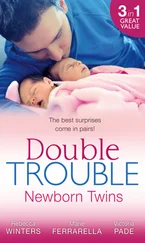The way I figure it, if Cortez’s take on the spatial mechanics of the police station garage is correct, and that’s a thick wedge of concrete wiggled into that floor like a cork in a bottle, then they can’t have done it themselves. Someone was there after Nico and her gang went down, and presuming that everyone in the group descended together, then it was someone else—someone who was hired and paid for the gig, contracted to roll the seal across the tomb.
Thus I am aware of a concrete job that was recently performed in this area, and I am aware of a group of men who were out offering themselves for odd jobs generally, but specializing in concrete.
That’s enough. Away I go, rolling south on State Road 4 in the middle of the night.
“Twenty or thirty miles,” says Billy, “that’s where the Amish farms start to crop up, the fruit stands and that. You can’t miss it.” Houdini’s in the wagon and my fat Eveready is duct-taped between the handlebars, sending a joggling uneven light down the highway ahead of us.
As I pedal I can picture Detective Culverson chuckling at me and my rookie logic. I can see him, across our booth at the Somerset Diner, looking at me with quiet amusement, rolling his cigar from one side of his mouth to the other. I can hear him poking at the holes in my theory like a loose tooth.
He asks his pointed questions in his mild voice, rolls his eyes at Ruth-Ann, the waitress, who joins him in teasing good old Hank Palace before bustling off for more coffee.
But the Somerset Diner finally closed, and Culverson and Ruth-Ann are back in Concord, and I have no other direction to point myself but forward, so here I go, State Road 4 due south toward “down county.” I let myself sleep in an empty rest stop, sleeping bag rolled out under a YOU ARE HERE map of the state of Ohio, alarm on the Casio set for five hours.
When Sandy asked for a name I said “Naomi” without thinking—even though Alison Koechner is the girl I loved the longest and Trish McConnell is the one I left behind, I said “Naomi” right away.
I think about her in the quiet moments, the moments created by the absence of television and radio and the bustle of normal human company, the moments not filled by investigatory reasoning or by the low churn of fear.
I met Naomi Eddes on a case and tried to protect her and couldn’t. One night together was what we got, that’s pretty much what it was: dinner at Mr. Chow’s, jasmine tea and lo mein noodles, and then my house, and then that was it.
Sometimes, when I can’t help it, I imagine how things might otherwise have ended up for us. Possible futures surface like fish from deep water; like memories of things that never got to happen. We might one day have been one of those happy sitcom households, cheerfully chaotic, with the colorful alphabet magnets making bright nonsense words on the refrigerator, with the chores and yard work, getting the kids out the door in the morning. Murmuring conversations late at night, just the two of us left awake.
Not worth dwelling on.
It’s not just a person’s present that dies when they die, when they are murdered or drowned or a giant rock falls on their head. It’s the past, too, all the memories that belonged only to them, the things they thought and never said. And all those possible futures, all the ways that life might have turned out. Past and future and present all burn up together like a bundle of sticks.
Most likely scenario, though, all things being equal, had Maia never darkened the sky: I would have just ended up alone. Like Dectective Russel, clean desk, no pictures, notebook bent open, putting in the hours. Dutiful detective at forty, wise old department hand at sixty, docile old codger at eighty-five, still turning over cases that he worked years ago.
* * *
All the Amish roadside groceries look the same: creaking wooden bins, empty baskets. All of the fruits and vegetables, of course, are long gone; ditto all the cakes and pies; all the Amish honey and Amish cheese and Amish pretzels.
For ten miles or so there are what feel like dozens of these places, and at each I get off the bike and check carefully for concrete work. In one place, slim round posts holding up the wood roof; in another place a set of handsome rounded steps leading from the racks outside to the little store. Over and over again I slide my aching body off the bike and kickstand it and get down on all fours to scour an abandoned farm stand, looking for a red stamp that bears the single word JOY. Over and over Houdini heaves himself out of the wagon and roots around next to me as if he knows what we’re looking for—the two of us together pushing past empty wicker shopping baskets and wads of thin discarded receipt paper.
A day of this. Almost a whole day of nothing, finding nothing, and then it’s late afternoon, and each time I get back on the bike I think maybe that’s it, maybe I can’t go any farther, but I can’t go back, what if I go back with nothing? My body is aching, and I’m starving, the chicken meals are a distant memory, and all the faded signs for pie and pretzels are not helping in the least.
“Okay,” I say to Houdini, at the sixth or eighth or hundredth of these little abandoned useless roadside stands. “Okay, now what?” There’s Cortez, back in Rotary, waiting impatiently, sitting cross-legged atop the secret door: Well? There’s Detective Culverson, at the Somerset of blessed memory, puffing wryly on his cigar. I don’t want to say I told you so, Stretch .
Except then there it is—a quarter mile farther down State Road 4, with just enough daylight left to see it—there it is. Not stamped on a post in the dirt after all, or at the base of a step, but above my head, written on a billboard, right up there in red letters literally ten feet tall. JOY FARMS.
And then, below it, in slightly smaller letters: CLOSED AND DESERTED. And below that: JESUS = SALVATION.
There’s another of the farm stands just beneath the sign, and a few minutes of investigation reveals a narrow byroad leading perpendicularly off into the cornfields behind it. I pause, looking back and forth between the sign and the road, and then I just grin, grin until my cheeks tighten, just to feel what it feels like, just for a second. And then I aim the bike down the byroad.
After a quarter mile winding through rows of corn the byroad narrows into a path, and when it narrows more it becomes impassable for the wagon, so I dig out the Swiss Army knife and use the Allen wrench to uncouple it, and then I leave the wagon behind and keep riding, deeper into the fields. After ten or fifteen minutes the clouds open and begin to spill rain across my forehead. The bike wheels get slick and wobbly on the wet path. I squint and wipe my eyes, wipe them again, pedal more carefully, slow down. The narrow path winds through the corn until I am confronted by a crossroads, and then another. Arbitrarily I choose my route, feeling after more time has passed that I am lost in a tangle of dirt passages, the rain now pouring steadily, confusing my way. I stand up on the pedals and angle forward a little bit, trying to cover Houdini with my body—Houdini who has somehow managed to fall asleep. Deeper I go, down this gravelly one-lane path, and it’s harder going, the rain really coming down now, pouring down through my eyebrows and soaking my cheeks, and I look away for a minute at the sodden patches of corn, and when I turn my eyes back to the path there is a tall wide man in a black hat, seated on a horse, right in the center of the path just a few feet away, sheets of rain parting across his face, a hunting rifle raised and aimed.
“Hey,” I start, and he fires the rifle in the air.
My face jerks back from the noise and I pull the handlebars hard to the right, wheeling and angling the bike sharply and careening off the road and smashing into the bent cornstalks. I tumble off the bike, watch Houdini bounce out of the basket. I scrabble for cover with my hands over my head. Two more shots. Each of them a loud, distinct kaboom , like he’s shooting at me with a cannon.
Читать дальше
